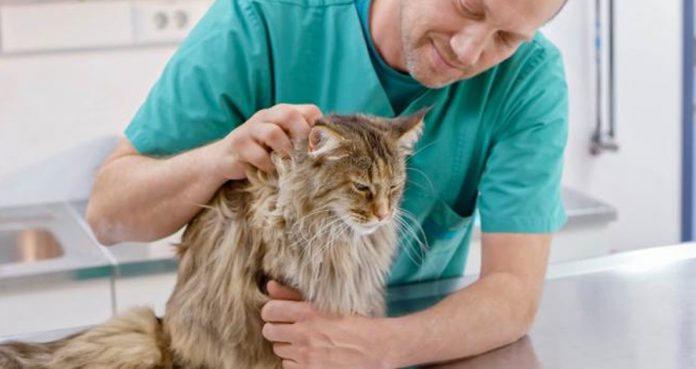Many pet owners believe that cats do not get exposed to diseases as they live mainly indoors, which is why they fail to realize that their pets need an annual checkup.
It is imperative to remember that annual examinations and regular checkups are extremely important for pet’s health, maintaining a healthy weight, and preventing diseases. Cat owners can make an appointment in February, which is celebrated as the National Cat Health Month.
Annual visits help a veterinarian to monitor your cat’s health and take preventive measures, such as:
Vaccination: Cats may need more vaccinations at an earlier age. As your cat grows, your veterinarian would ask about any lifestyle changes that would demand different vaccinations. It is important to note that kittens should get the rabies vaccine once they turn 12 weeks old.
Spay or neuter: Cats may become pregnant when they are as young as 5 months old, so it is important to spay or neuter them at a very young age. They should be at least 2 pounds before being spayed or neutered. Senior pets may face a higher risk of postoperative complications so it is better to spay and neuter them at a young age.
Heartworm prevention: Cats need monthly prevention to keep them away from fleas and heartworm. Just one mosquito bite to cats can cause heartworm, so it is imperative to take your cat to your vet for annual examinations and regular checkups.
Weight changes: Cats often have weight issues. Veterinarians can detect any changes in weight more quickly if they get to see your cat annually. Weight gain in cats can put stress on their internal organs, leading to diseases such as diabetes.
Oral care: Just like humans, cats may get tartar and plaque formation on their teeth, leading to gum disease and tooth decay. Veterinarians can recommend ways to support your cat’s oral or dental care such as using pet-friendly toothpaste or dental cleanings during annual visits. If cats develop an oral disease, veterinarian would recommend medical care, such as prescriptions or tooth extractions. Geriatric care: When pets reach middle age, veterinarians can use their past and present medical history from previous and recent visits to determine whether they are at risk of developing chronic medical problems such as thyroid or kidney disease. Another important aspect of diagnosing potential medical issues in old-aged cats is blood work or screening.




















